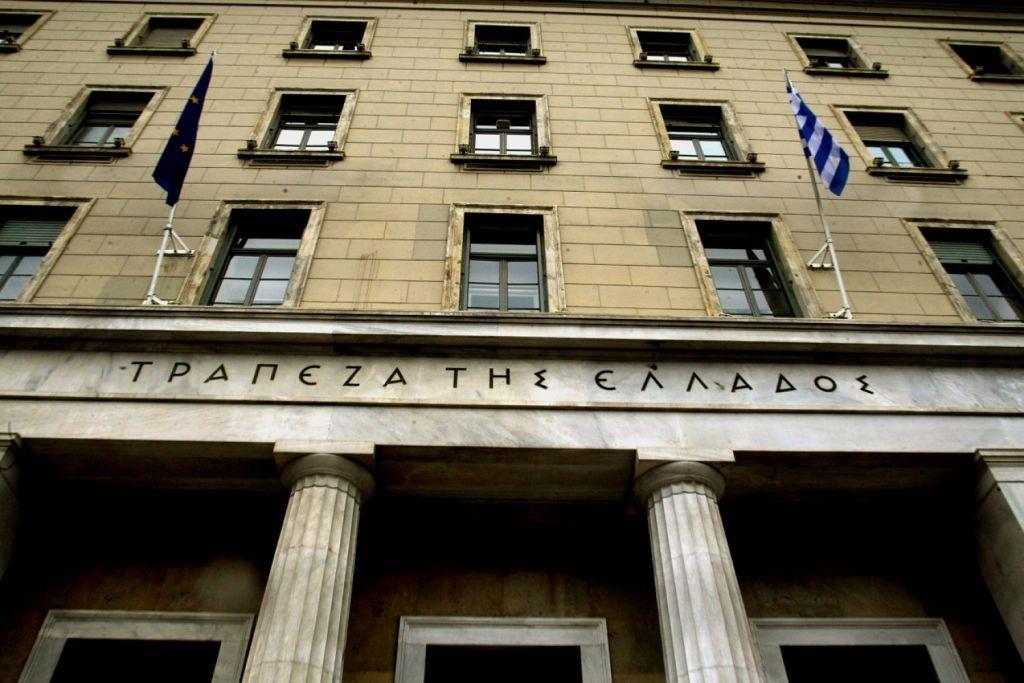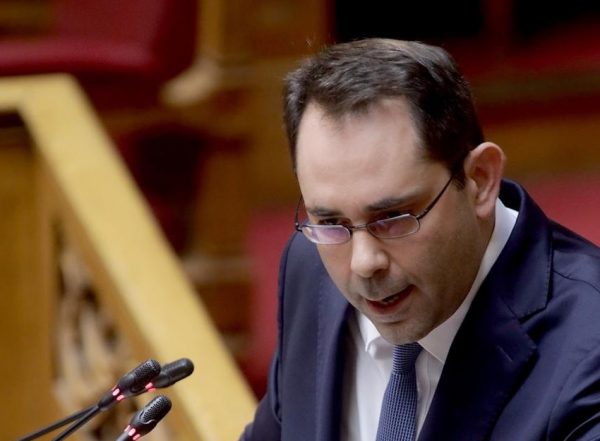
According to the Governor of the Bank of Greece, Giannis Stournara, the forecasts for a rapid recovery of the Greek economy from now on are subject to significant risks related to the evolution of the pandemic nationally and globally.
The report on Monetary Policy 2020-2021 submitted today to the Speaker of the Greek Parliament and the Council of Ministers, forecasts GDP growth of 4.2% this year, 5.3% in 2022 and 3.90% in 2023, while no performance is unlikely to be better under certain conditions.
However, Mr. Stournaras points out that health risks remain high. According to the report, despite the fact that the vaccination program is progressing smoothly, the spread of coronavirus mutations is a source of uncertainty and any worsening of the pandemic could lead to a sluggish tourist season and delay the return to normalcy.
Do not interrupt support measures
In addition, he once again called on the government not to rush into withdrawing measures to support the economy, as in such a case the possibility of increasing corporate bankruptcies and non-performing loans (NPLs) is likely, as well as contributing to a deteriorating labor market. An additional risk, according to Stournaras, stems from a possible delay in the absorption of European resource.
On the other hand, the central banker emphasizes, “faster implementation of reforms and full absorption and efficient use of European resources may lead to greater investment growth and faster economic recovery during the forecast period.”
He stressed that “given the significant improvement in the consumer confidence index in recent months, in the near future it is likely that households will increase their consumption to a significantly greater extent than expected, utilizing the savings that have accumulated for welfare reasons and due to consumer spending as a result of restrictive measures “.
The interconnection of banks and the state
In the medium term, Mr. Stournaras argues that the increased interconnection of the public and banking sectors at national and European level (through increased retention of government bonds by banks, the provision of government guarantees in the banking system and deferred tax requirements) heightens the danger for financial stability.
“The resurgence of both deficits and high private and public debt (as well as the high reserve of potential government liabilities due to the provision of guarantees) are risk factors and make the economy more vulnerable to a new negative external turmoil,” he said.
Moreover, he says that an additional risk in the medium term is the possibility of termination of the extraordinary, due to the pandemic, monetary policy measures of the ECB, before the Greek bonds regain investment level.
In this case, the governor explains, Greek bonds will become vulnerable to possible disruptions in the global financial system, which could result from a sharp tightening of monetary policy in developed economies as a result of faster-than-expected inflation.
Finally, in the external environment, any geopolitical tensions in the wider Southeastern Mediterranean region may exacerbate the refugee crisis and affect the economic climate and investment.
In conclusion, however, Mr. Stournaras estimates that despite the risks and uncertainty about the future course of the economy, “the positive results from the timely and full utilization of European resources are considered more likely in relation to the downside risks, both in the short term and and in the medium term. As a result, a better-than-expected course for the economy in the period 2021-2023 is possible “.
Latest News

DM Dendias: We talk With Turkey But We Always Bring Up Their Unacceptable Positions
Second and last day of closely watched conference, entitled 'Metapolitefsi 1974-2024: 50 Years of Greek Foreign Policy', also included appearances by PM Mitsotakis, Ex-PM Tsipras and PASOK leader Nikos Androulakis, among others

Rhodes Airport Tops Fraport Greece’s Regional Airports in 2024 Performance
According to Fraport's data, more than 35 million passengers (specifically 35.2 million) were handled by Fraport-managed airports during the 11 months.

European Central Bank Cuts Interest Rates by 25 Basis Points
It is the fourth cut of interest rates by Europe’s central bank, a move expected by the markets and financial analysts leading to the rate settling at 3%.

Airbnb: New Measures Add €600 in Extra Costs for Property Owners
Property managers face an immediate administrative fine of 5,000 euros if access to the inspected property is denied or any of the specified requirements are not met.

Economist: Greece Included in the Best Performing Economies in 2024
Meanwhile, Northern European countries disappoint, with sluggish performances from the United Kingdom and Germany.

EasyJet Expands Its Routes from Athens
The airline’s two new routes will be to London Luton and Alicante and they will commence in summer 2025.

Capital Link Forum Highlights Greece’s Economic Resurgence; Honors BoG Gov Stournaras
Capital Link Hellenic Leadership Award recipient, Bank of Greece Gov. Yannis Stournaras, an ex-FinMin, was lauded for his pivotal role during Greece’s economic recovery

Tourist Spending in Greece Up by 14%, Visa Card Analysis Shows
Greece’s capital Athens emerged as the most popular destination, recording a 17% increase in transactions with Visa cards, surpassing even the cosmopolitan island of Mykonos.

Inflation in Greece Unchanged at 2.4% in Nov. 2024
The general consumer price index (CPI) posted a 0.4% decrease in November compared to the previous month

2024 Christmas Holidays: Extended Shop Hours Schedule
The 2024 Christmas Holidays extended shop hours schedule commences on Thursday, December 12 and runs until the end of the year.


![Φυσικό αέριο: Δυναμικό come back του LNG στην Ελλάδα [γραφήματα]](https://www.ot.gr/wp-content/uploads/2023/01/OT_naturalgas-90x90.jpeg)












![Fraport: Πάνω από 35 εκατ. επιβάτες στα αεροδρόμια το 11μηνο – Πτώση στη Μύκονο [πίνακας]](https://www.ot.gr/wp-content/uploads/2022/06/fraport-90x90.jpg)


























 Αριθμός Πιστοποίησης Μ.Η.Τ.232433
Αριθμός Πιστοποίησης Μ.Η.Τ.232433